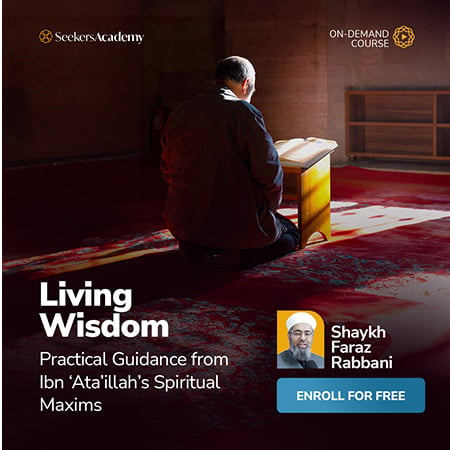
For centuries, wayfarers on the path to God have found their sustenance in Ibn ‘Ata’illah al-Sakandari’s Spiritual Maxims (Hikam), a collection of profound sayings outlining the path of spiritual development. In this series, Shaykh Faraz Rabbani works to make these insights accessible for a general audience. He gives a simplified explanation of the text alongside practical examples of how we can draw from their wisdom in our day-to-day practice of Islam—making these lessons a useful accompaniment for Muslims looking to improve their connection with their Maker.
Ibn ‘Ata‘illah’s Spiritual Maxims (Hikam) is a collection of short words of wisdom written by a famed 14th-century master of the path of drawing closer to Allah Most High. The author’s teacher and mentor, Abu l-‘Abbas al-Mursi, is said to have described this work as being a summary of Ghazali’s Revival of the Religious Sciences with additions to it. In the centuries since its composition, it has served as an unfailing guide for seekers across the Muslim world seeking to embark on the journey of self-improvement. It has also been the subject of several scholarly commentaries.
This is a general-level course for anyone looking for insights on how to improve their connection with their Creator.
- Learn about common pitfalls in religious practice and how to avoid them.
- Gain insight on how the imams of Islamic spirituality approached the topic.
- Reflect on practical examples on how to apply these insights in our day-to-day lives.